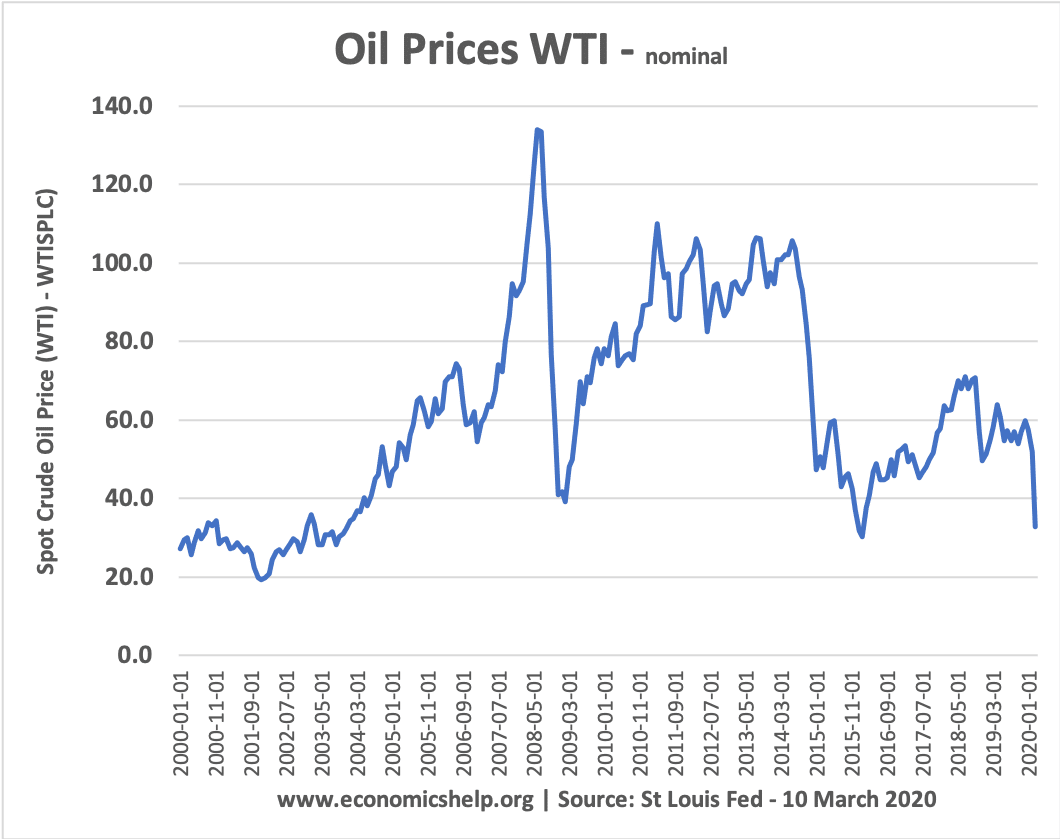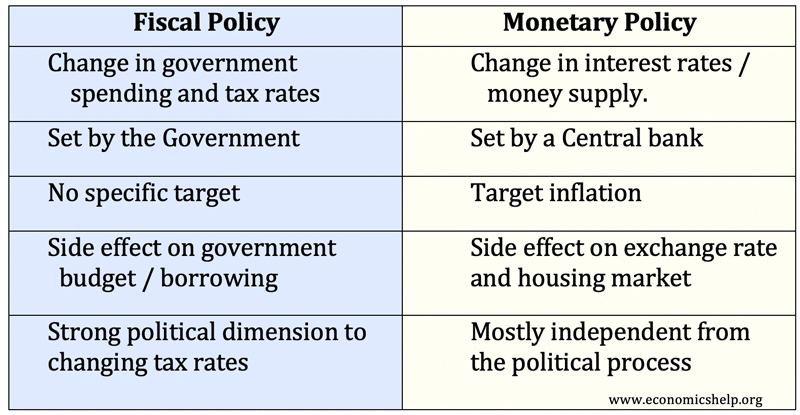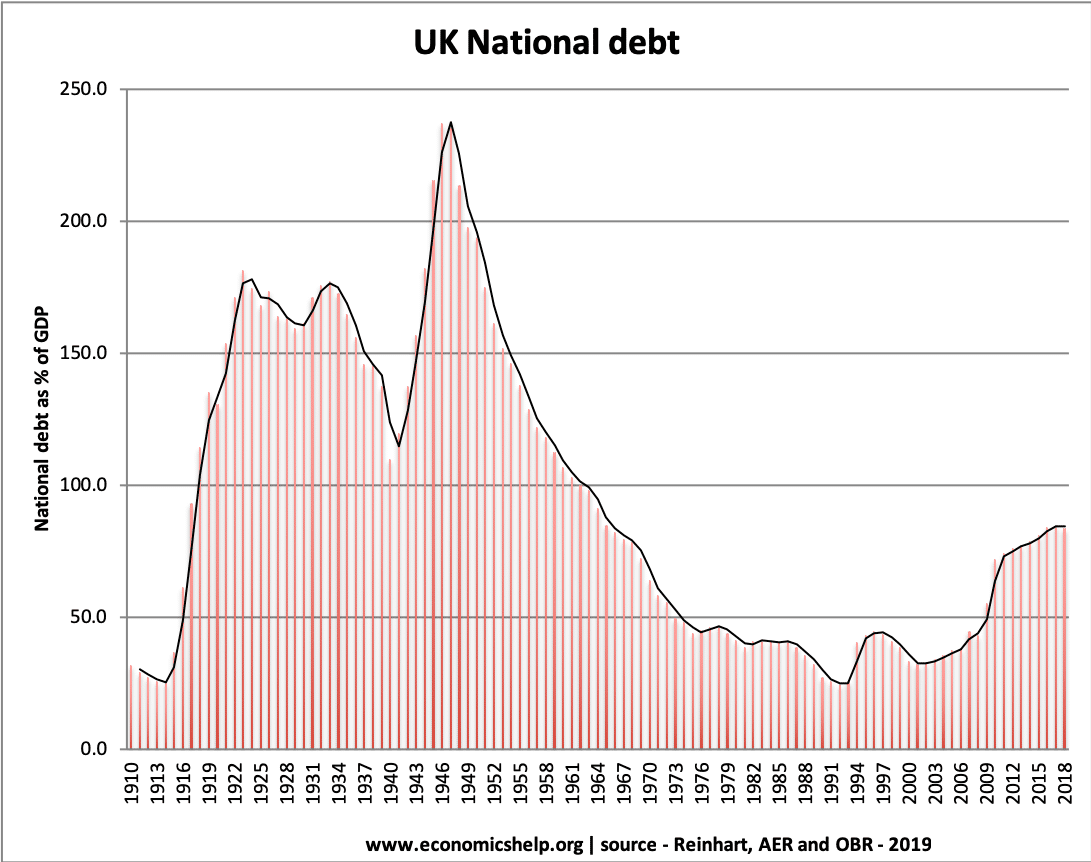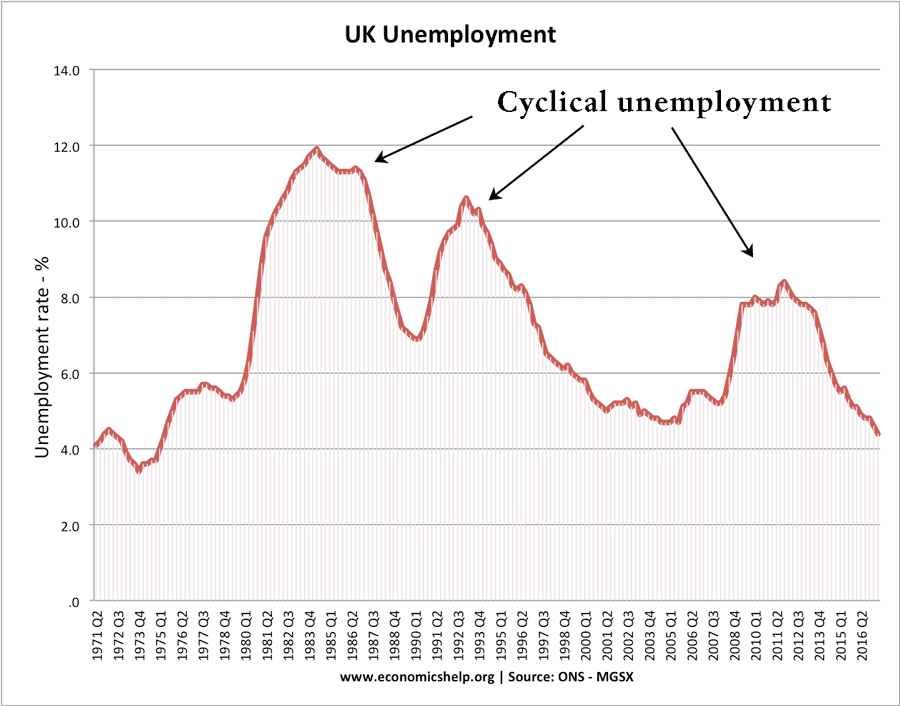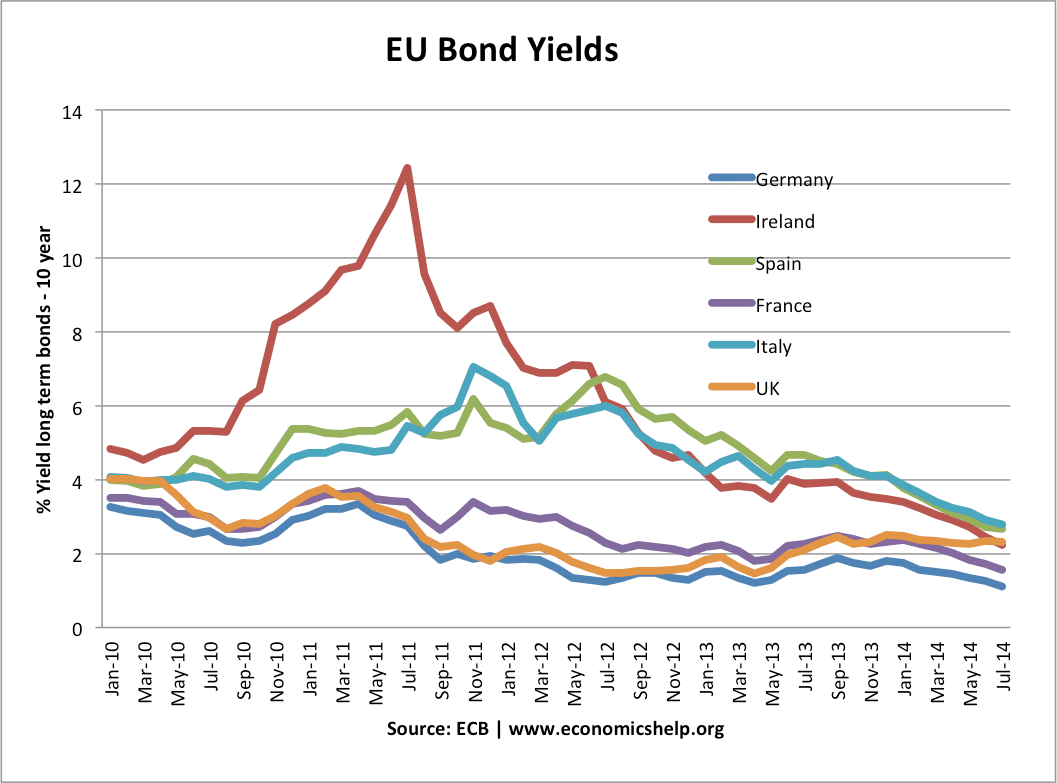How to reduce value of a currency
Sometimes governments may wish to reduce the value of their currency. A depreciation in the value of a currency would make exports cheaper, imports more expensive and can provide a boost to domestic demand. If the economy is stuck in recession or unemployment rising, reducing the value of a currency can help increase economic growth …

